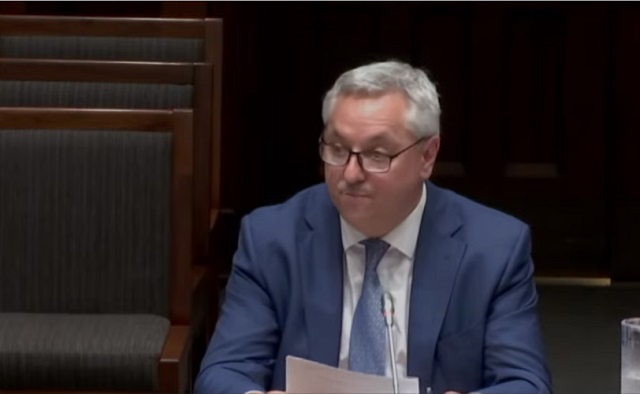Brownstone Institute
Sorry Seems to Be the Hardest Word
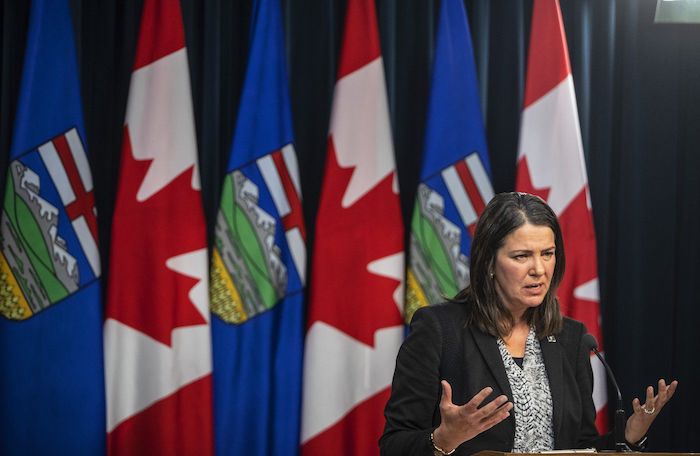
From the Brownstone Institute
BY
It’s been more than obvious since April 2020 that lockdowns were far too costly for individuals and society and could never earn a rational public-health defense. And the evidence was rolling in from one year later that the vaccine mandates were similarly indefensible.
Both tactics had in common the enormous use of state coercion that flew in the face of every principle of civilized government.
As we are constantly told, both people and government were panicked, and needlessly so. As it turns out, the infection fatality rate was not 2-3 percent, as the WHO had said early on, or 1 percent as Fauci told the Senate in March 2020, but rather 0.035 percent for anyone under the age of 60 (which is 94 percent of the population).
Covid has been highly transmissible and with it the resulting protection of natural immunity. The correct policy should have been to maintain all social and market functioning while the actual vulnerable population protected itself as it awaited widespread immunity. That’s how every generation for 100 years has handled infectious disease: as a medical and not political matter.
In other words, politicians and officials the world over made enormous and obvious errors, just not later but from the outset. This is not really worth arguing any more. The evidence is now 2.5 years deep. Insisting on 85 percent coverage of an ineffective vaccine was also an egregious error becaus people are not stupid and knew that they did not need this vaccine, especially since it protects not against infection or transmission and its approval bypassed all normal standards of clinical trials.
Where are the apologies? Sorry seems to be the hardest word. Faced with enormous failure, the machinery that did this to us has generally refused to say the simple word. It’s the hardest thing for people with power to admit their fallibility. Even though the whole world knows what they did and vast and increasing numbers are aware of the utter failure, the political class still insists on living in a fantasy land of its own creation.
There are exceptions.
Prime Minister Imran Khan apologized for lockdowns in April 2020.
Ron DeSantis of Florida has repeatedly said that the lockdowns were an enormous mistake and will never happen again so long as he is in charge. That’s very close to being an apology, though many residents are still awaiting the magic word.
Also in 2020, Norway’s prime minister Erna Solberg went on Norwegian television to say that she and others panicked and “took many of the decisions out of fear.”
That’s close to being an apology.
So far as I know, that’s about it. Until yesterday. The new Premier of Alberta Canada Danielle Smith has offered an apology to Albertans who were discriminated against because of their COVID-19 vaccination status. “I am deeply sorry for any government employee that lost their job and I welcome them back if they want to come back.”
Glory be! That’s precisely what we are looking for. Not just from a few but from all. The near absence of such apologies is driving the massive political realignment the world over, as furious voters demand admission of wrongdoing and justice for the victims.
They are not forthcoming and therefore the anger is only rising. The storm clouds are gathering around the impossibly arrogant Anthony Fauci, with a new hit movie making the rounds and a judge demanding that he be deposed in a powerful lawsuit filed against his hypercritical collusion with social media companies to censor truth.
Now nearly three years into this disaster, the worry that humanity would just accept the outrage and move on is proving unwarranted. People are discovering that there is plenty of dissent out there, and it stretches across the partisan divide. The resulting cultural and political realignments will echo long into the future, like other major upheavals of the past.
Think of the big historical events that echoed for generations in American politics. The struggle over slavery. World War I. Prohibition. The New Deal. World War II. The Cold War. The last one I know well, having come of age in the latter years. In retrospect, the long episode of the Cold War was packed with mythology. Still, the struggle was expressed in ideological terms of freedom vs. communism. The alliances that lined up remained for decades and impacted cycle after cycle of political controversy at home and abroad.
For strange reasons of timing and loss of principle, the “woke” left found itself mixed up in lockdown politics and then the vaccine mandate. Many of them lined up with policies that violate the very rights they had spent decades defending. So much for the Bill of Rights, the freedom of movement, the appreciation for the classless society, bodily autonomy, and so on. The left lost its soul during these years, and thereby alienated multitudes of sane lefties who watched in horror as their own tribe abandoned them in favor of the authoritarianism they had long decried.
Lockdown/mandate vs not: this has the capacity to be a theme that will resonate far into the future. It also unites people on the political “right” again with small business, genuine civil libertarians, and champions of religious liberty. It permits the “left” to again find its voice for human rights and freedoms. For that matter, they do not have to be activists; they only need to be people who do not want their houses of worship padlocked, their business closed and bankrupted, their speech curtailed, or their bodily autonomy violated.
It also put the emphasis on the correct point: the protection of American liberties not from some shadowy foreign enemy but from our own governments. It also draws in the left that has long been suspicious of the place of big business, and, in this case, rightfully so. The largest corporations such as Google, Amazon, and Meta (Facebook), for all the good that they achieve in this world, have leaned decisively in favor of lockdowns.
Same with Big Media. The reason is not just that they are harmed less by lockdowns and, in many cases, actually benefited from them. It’s because the people ruling these companies enjoy ruling-class lives, and they see the world through them. Lockdowns were the favored policy for cultural and political reasons, which is itself a scandal.
There is another group of powerful people in a position to dedicate themselves to the anti-lockdown/anti-mandate cause: parents. In an astonishing act of despotic ignorance, governors closed schools down all over the country, with zero medical benefit and grotesque levels of abuse for children and parents.
These are schools for which people pay heavily in property taxes, while parents using private schools pay twice. Governments shut them down, robbing parents of their money and smashing their settled lives. Many children in this country lost two years of education. Many families with two incomes had to drop one of them in order to babysit their children at home as they pretended to learn on Zoom while being denied access to peers.
Then once schools were operating normally, the CDC approved without evidence the Covid vaccine as an addition to the childhood schedule. Parents are not this dumb. They will never go for it. They will pull the kids out of public school and into private and homeschooling, causing a real crisis for one of the most settled institutions in American life.
Then you have the problem of colleges and universities. Rightly or wrongly, parents and students make extreme financial sacrifices to pay for college in the hopes that the right education and degree sets people up for a lifetime of success. Whether this is true or not, parents are risk-averse with their children’s future so that they do whatever is necessary to make it happen.
Then one day, the kids were locked out of the universities that they pay to attend. No parties. No study sessions. No going to other people’s rooms. No in-person instructions. Many thousands of students in this country have been fined and harassed for noncompliance. They’ve had masks forced on them even though their risk from the virus approaches zero, and the memory of this humiliation will last a full lifetime. Then came the vaccines, forced on college students who did not need them and are most vulnerable to adverse events.
Why have the people put up with this? Under normal conditions, they never would have. None of this would have been possible. The one reason they did this time: fear. Fear of getting sick and dying or, if not dying, experiencing permanent health effects. This emotion can last far longer than one might think. But eventually emotions do catch up with facts, among which is that the danger of severe outcomes was wildly exaggerated and the lockdowns and mandates achieved nothing in terms of disease mitigation.
You mean all this suffering and horror was for naught? Once that realization dawns, fear turns to anger, and anger to action. If you understand that dynamic, you can see why the architects of lockdowns from Dr. Fauci to the CDC are doing their best to delay that dawning, with daily doses of alarmism designed to keep people languishing in fear and ignorance.
The fear however is breaking. We will reflect on all the incredible health theater to which we’ve been subjected for two and a half years, the hopping around people to stay 6 feet away, the silly ban on restaurant menus, the on-again-off-again mandatory masking of the people, the curfews and capacity limits, and we’ll realize that the people who passed on all these emergency measures were just making things up in order to appear decisive and precise.
We will look back and feel mortified at how we treated each other so brutally, how so many turned into rats hungry to get our friends and neighbors in trouble with the compliance police, how we willingly believed so many untrue things and practiced such preposterous rituals out of a belief that we were avoiding and thus controlling the enemy pathogen we couldn’t see.
None of this will soon be forgotten. It’s the trauma of our lives. They stole our freedom, our happiness, our way of life, and attempted to replace them all with a stern regime with puritan sensibilities that rivaled the Taliban, forcing the whole population to hide their faces and live in fear of the American Mandarins who then came after the whole population with needles and woefully vetted shots.
Karma is already turning on the whole gang of coercive totalitarians here and abroad. While the virus is invisible, the people who dreamed up and enforced lockdowns and mandates who wrecked the country are highly visible. They have names and careers, and they are right to be very worried about their futures.
The sociological basis of the Catholic institution of auricular confession is to habituate people into the psychologically most difficult practice of admitting error, asking forgiveness, and pledging not to do it again. Saying it out loud within earshot of others is harder still. Every religion has some version of this because doing so is part of becoming a responsible human being.
The best approach is a simple word: sorry. So rare but so powerful. Why won’t more follow the lead of Danielle Smith and just say it?
Brownstone Institute
A Coup Without Firing a Shot

From the Brownstone Institute
BY
We all have a different starting place and journey but each of us has the following in common. We’ve realized that official sources, the ones we’ve trusted in the past, are not going to make any sense of the above for us. We have to seek out alternatives and put the story together ourselves. And this we must do because the only other choice is to accept that all of the above consists of a random series of disconnected and pointless events, which is surely not true.
The last few years can be tracked at two levels: the physical reality around us and the realm of the intellectual, mental, and psychological.
The first level has presented a chaotic narrative of the previously unthinkable. A killer virus that turned out to be what many people said it was in February 2020: a bad flu with a known demographic risk best treated with known therapeutics. But that template and the ensuing campaign of fear and emergency rule gave rise to astonishing changes in our lives.
Social functioning was wholly upended as schools, businesses, churches, and travel were ended by force. The entire population of the world was told to mask up, despite vast evidence that doing so achieved nothing in terms of stopping a respiratory virus.
That was followed by a breathtaking propaganda campaign for a shot that failed to live up to its promise. The cure for the disease itself caused tremendous damage to health including death, a subject about which everyone cared intensely before the shot and then strangely forgot about after.
Protests against the goings-on were met with media smears, shutdowns, and even the cancellation of bank accounts. However, and simultaneously, other forms of protest were encouraged, insofar as they were motivated by a more proper political agenda against structural injustices in the old system of law and order. That was a strange confluence of events, to say the least.
In the midst of this, which was wild enough, came new forms of surveillance, censorship, corporate consolidation, an explosion of government spending and power, rampant and global inflation, and hot wars from long-running border conflicts in two crucial regions.
The old Declarations of rules on the Internet put free speech as a first principle. Today, the hosting website of the most famous one, signed by Amnesty International and the ACLU, is gone, almost as if it never existed. In 2022, it came to be replaced by a White House Declaration on the Future of the Internet, that extols stakeholder control as the central principle.
All the while, once-trusted sources of information – media, academia, think tanks – have steadfastly refused to report and respond in truthful ways, leading to a further loss of public trust not just in government and politics but also in everything else, including corporate tech and all the higher order sectors of the culture.
Also part of this has been a political crisis in many nations, including the use of sketchy election strategies justified by epidemiologic emergency: the only safe way to vote (said the CDC) is absentee via the mails. Here we find one of many overlapping parallels to a scenario hardly ever imagined: infectious disease deployed as a cover for political manipulation.
Crucially and ominously, all of these mind-blowing developments took place in roughly similar ways the world over, and with the same language and model. Everywhere people were told “We are all in this together,” and that social distancing, masking, and vaxxing was the correct way out. Media was also censored everywhere, while anti-lockdown protestors (or even those who simply wanted to worship together in peace) were treated not as dissidents to be tolerated but irresponsible spreaders of disease.
Can we really pretend that all of this is normal, much less justified? The exhortation we receive daily is that we can and must.
Really? At what point did you realize that you had to start thinking for yourself?
We all have a different starting place and journey but each of us has the following in common. We’ve realized that official sources, the ones we’ve trusted in the past, are not going to make any sense of the above for us. We have to seek out alternatives and put the story together ourselves. And this we must do because the only other choice is to accept that all of the above consists of a random series of disconnected and pointless events, which is surely not true.
That leads to the second layer of comprehension; the intellectual, mental, and psychological. Here is where we find the real drama and incalculable difficulties.
At the dawn of lockdowns, what appeared to be a primitive public health error seemed to be taking place. It seemed like some scientists at the top, who gained an implausible amount of influence over government policy, had forgotten about natural immunity and were under the impression that it was good for health to stay home, be personally isolated, avoid exercise, and eat only takeout food. Surely such preposterous advice would be revealed soon as the nonsense it was.
How in the world could they be so stupid? How did they gain so much influence, not just nationally but all over the world? Did the whole of humanity suddenly forget about all known science in every field from virology to economics to psychology?
As time went on, more and more anomalies appeared that made that judgment seem naïve. As it turns out, what was actually taking place had something to do with a move on the part of security and intelligence services. It was they who were given rule-making authority on March 13, 2020, and that’s why so much of what we needed to know was and is considered classified.
There were early initial reports that the virus itself might have been leaked from a US-backed lab in Wuhan, which introduces the entire subject of the US bioweapons program. This is a very deep rabbit hole itself, thoroughly exposed in Robert F. Kennedy, Jr.’s The Wuhan Cover-Up. There was a reason that topic was censored: it was all true. And as it turns out, the vaccine itself was able to bypass the normal approval process by slipping through under the cover of emergency. In effect, it came pre-approved by the military.
As the evidence continues to roll in, more and more rabbit holes appear, thousands of them. Each has a name: Pharma, CCP, WHO, Big Tech, Big Media, CBDCs, WEF, Deep State, Great Reset, Censorship, FTX, CISA, EVs, Climate Change, DEI, BlackRock, and many more besides. Each of these subject areas has threads or thousands of them, each connecting to more and to each other. At this point, it is simply not possible for a single person to follow it all.
To those of us who have been steeped in following the revelations day by day, and trying to keep up with putting them together into a coherent model of what happened to us, and what is still going on, the ominous reality is that the traditional understanding of rights, liberties, law, business, media, and science were dramatically overthrown in the course of just a few months and years.
Nothing operates today as it did in 2019. It’s not just that functioning broke. It was broken and then replaced. And the surreptitious coup d’état with no shots fired is still ongoing, even if that is not the headline.
Of this fact, many of us today are certain. But how common is this knowledge? Is it a vague intuition held by many members of the public or is it known in more detail? There are no reliable polls. We are left to guess. If any of us in 2019 believed we had our finger on the pulse of the national mood or public opinion generally, we certainly do not anymore.
Nor do we have access to the inner workings of government at the highest levels, much less the conversations going on among the winners of our age, the well-connected ruling elites who seemed to have gamed the entire system for their own benefit.
It’s so much easier to regard the whole thing as a giant confusion or accident on grounds that only cranks and crazies believe in conspiracy theories. The trouble with that outlook is that it posits something even more implausible; that something this gigantic, far-reaching, and dramatic could have happened with no real intentionality or purpose or that it all fell together as a huge accident.
Brownstone Institute has published more than 2,000 articles and 10 books exploring all over the above topics. Other venues and friends are out there helping us with this research and discovery, issue by issue. Even so, a great deal of responsibility falls on this one institution, the main work of which is providing support for dissident and displaced voices, which is implausible since it was only founded three years ago. We are deeply grateful for our supporters and would welcome you to join them.
As for the intellectuals we once revered for their curiosity and wisdom, most seem to have gone into hiding, either unable to adapt to the new realities or just unwilling to risk their careers by exploring hard topics. It’s understandable but still tragic. Most are happy to pretend like nothing happened or celebrate the change as nothing but progress. As for journalists, the New York Times publishes daily commentaries dismissing the Constitution as a dated anachronism that has to go and no one thinks much about it.
There is a lot to sort out. So much has changed so quickly. No sooner than the dust seems to be settling from one upheaval, there is another and then another. Keeping up with it all causes a level of psychological brain scramble on a scale we’ve never previously experienced.
It’s easier to wait for the historians to tell the next generation what happened. But maybe, just maybe, by stepping up and telling the story as we see it in real time, we can make a difference in stopping this madness and restoring some sane and normal freedom back to the world.
Brownstone Institute
Is the Overton Window Real, Imagined, or Constructed?
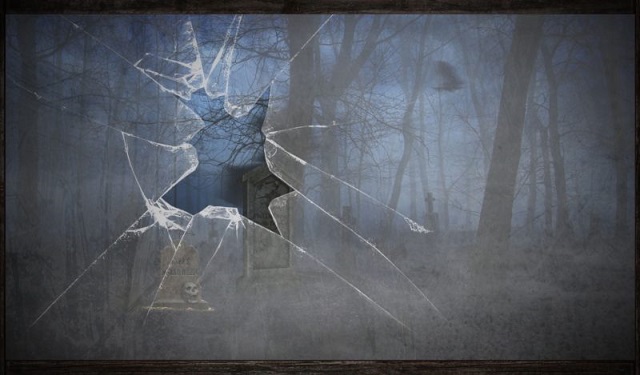
From the Brownstone Institute
BY
Ideas move from Unthinkable to Radical to Acceptable to Sensible to Popular to become Policy.
The concept of the Overton window caught on in professional culture, particularly those seeking to nudge public opinion, because it taps into a certain sense that we all know is there. There are things you can say and things you cannot say, not because there are speech controls (though there are) but because holding certain views makes you anathema and dismissable. This leads to less influence and effectiveness.
The Overton window is a way of mapping sayable opinions. The goal of advocacy is to stay within the window while moving it just ever so much. For example, if you are writing about monetary policy, you should say that the Fed should not immediately reduce rates for fear of igniting inflation. You can really think that the Fed should be abolished but saying that is inconsistent with the demands of polite society.
That’s only one example of a million.
To notice and comply with the Overton window is not the same as merely favoring incremental change over dramatic reform. There is not and should never be an issue with marginal change. That’s not what is at stake.
To be aware of the Overton window, and fit within it, means to curate your own advocacy. You should do so in a way that is designed to comply with a structure of opinion that is pre-existing as a kind of template we are all given. It means to craft a strategy specifically designed to game the system, which is said to operate according to acceptable and unacceptable opinionizing.
In every area of social, economic, and political life, we find a form of compliance with strategic considerations seemingly dictated by this Window. There is no sense in spouting off opinions that offend or trigger people because they will just dismiss you as not credible. But if you keep your eye on the Window – as if you can know it, see it, manage it – you might succeed in expanding it a bit here and there and thereby achieve your goals eventually.
The mission here is always to let considerations of strategy run alongside – perhaps even ultimately prevail in the short run – over issues of principle and truth, all in the interest of being not merely right but also effective. Everyone in the business of affecting public opinion does this, all in compliance with the perception of the existence of this Window.
Tellingly, the whole idea grows out of think tank culture, which puts a premium on effectiveness and metrics as a means of institutional funding. The concept was named for Joseph Overton, who worked at the Mackinac Center for Public Policy in Michigan. He found that it was useless in his work to advocate for positions that he could not recruit politicians to say from the legislative floor or on the campaign trail. By crafting policy ideas that fit within the prevailing media and political culture, however, he saw some successes about which he and his team could brag to the donor base.
This experience led him to a more general theory that was later codified by his colleague Joseph Lehman, and then elaborated upon by Joshua Treviño, who postulated degrees of acceptability. Ideas move from Unthinkable to Radical to Acceptable to Sensible to Popular to become Policy. A wise intellectual shepherd will manage this transition carefully from one stage to the next until victory and then take on a new issue.
The core intuition here is rather obvious. It probably achieves little in life to go around screaming some radical slogan about what all politicians should do if there is no practical means to achieve it and zero chance of it happening. But writing well-thought-out position papers with citations backed by large books by Ivy League authors and pushing for changes on the margin that keep politicians out of trouble with the media might move the Window slightly and eventually enough to make a difference.
Beyond that example, which surely does tap into some evidence in this or that case, how true is this analysis?
First, the theory of the Overton window presumes a smooth connection between public opinion and political outcomes. During most of my life, that seemed to be the case or, at least, we imagined it to be the case. Today this is gravely in question. Politicians do things daily and hourly that are opposed by their constituents – fund foreign aid and wars for example – but they do it anyway due to well-organized pressure groups that operate outside public awareness. That’s true many times over with the administrative and deep layers of the state.
In most countries, states and elites that run them operate without the consent of the governed. No one likes the surveillance and censorial state but they are growing regardless, and nothing about shifts in public opinion seem to make any difference. It’s surely true that there comes a point when state managers pull back on their schemes for fear of public backlash but when that happens or where, or when and how, wholly depends on the circumstances of time and place.
Second, the Overton window presumes there is something organic about the way the Window is shaped and moves. That is probably not entirely true either. Revelations of our own time show just how involved are major state actors in media and tech, even to the point of dictating the structure and parameters of opinions held in the public, all in the interest of controlling the culture of belief in the population.
I had read Manufacturing Consent (Noam Chomsky and Edward Herman; full text here) when it came out in 1988 and found it compelling. It was entirely believable that deep ruling class interests were more involved than we know about what we are supposed to think about foreign-policy matters and national emergencies, and, further, entirely plausible that major media outlets would reflect these views as a matter of seeking to fit in and ride the wave of change.
What I had not understood was just how far-reaching this effort to manufacture consent is in real life. What illustrates this perfectly has been media and censorship over the pandemic years in which nearly all official channels of opinion have very strictly reflected and enforced the cranky views of a tiny elite. Honestly, how many actual people in the US were behind the lockdowns policy in terms of theory and action? Probably fewer than 1,000. Probably closer to 100.
But thanks to the work of the Censorship Industrial Complex, an industry built of dozens of agencies and thousands of third-party cutouts including universities, we were led to believe that lockdowns and closures were just the way things are done. Vast amounts of the propaganda we endured was top down and wholly manufactured.
Third, the lockdown experience demonstrates that there is nothing necessarily slow and evolutionary about the movement of the Window. In February 2020, mainstream public health was warning against travel restrictions, quarantines, business closures, and the stigmatization of the sick. A mere 30 days later, all these policies became acceptable and even mandatory belief. Not even Orwell imagined such a dramatic and sudden shift was possible!
The Window didn’t just move. It dramatically shifted from one side of the room to the other, with all the top players against saying the right thing at the right time, and then finding themselves in the awkward position of having to publicly contradict what they had said only weeks earlier. The excuse was that “the science changed” but that is completely untrue and an obvious cover for what was really just a craven attempt to chase what the powerful were saying and doing.
It was the same with the vaccine, which major media voices opposed so long as Trump was president and then favored once the election was declared for Biden. Are we really supposed to believe that this massive switch came about because of some mystical window shift or does the change have a more direct explanation?
Fourth, the entire model is wildly presumptuous. It is built by intuition, not data, of course. And it presumes that we can know the parameters of its existence and manage how it is gradually manipulated over time. None of this is true. In the end, an agenda based on acting on this supposed Window involves deferring to the intuitions of some manager who decides that this or that statement or agenda is “good optics” or “bad optics,” to deploy the fashionable language of our time.
The right response to all such claims is: you don’t know that. You are only pretending to know but you don’t actually know. What your seemingly perfect discernment of strategy is really about concerns your own personal taste for the fight, for controversy, for argument, and your willingness to stand up publicly for a principle you believe will very likely run counter to elite priorities. That’s perfectly fine, but don’t mask your taste for public engagement in the garb of fake management theory.
It’s precisely for this reason that so many intellectuals and institutions stayed completely silent during lockdowns when everyone was being treated so brutally by public health. Many people knew the truth – that everyone would get this bug, most would shake it off just fine, and then it would become endemic – but were simply afraid to say it. Cite the Overton window all you want but what is really at issue is one’s willingness to exercise moral courage.
The relationship between public opinion, cultural feeling, and state policy has always been complex, opaque, and beyond the capacity of empirical methods to model. It’s for this reason that there is such a vast literature on social change.
We live in times in which most of what we thought we knew about the strategies for social and political change have been blown up. That’s simply because the normal world we knew only five years ago – or thought we knew – no longer exists. Everything is broken, including whatever imaginings we had about the existence of this Overton window.
What to do about it? I would suggest a simple answer. Forget the model, which might be completely misconstrued in any case. Just say what is true, with sincerity, without malice, without convoluted hopes of manipulating others. It’s a time for truth, which earns trust. Only that will blow the window wide open and finally demolish it forever.
-

 Censorship Industrial Complex2 days ago
Censorship Industrial Complex2 days agoDesperate Liberals move to stop MPs from calling Trudeau ‘corrupt’
-

 Business1 day ago
Business1 day agoFederal government’s ‘fudget budget’ relies on fanciful assumptions of productivity growth
-

 Health20 hours ago
Health20 hours agoTransgender activists are threatening the author of scathing UK report on child ‘sex changes’
-
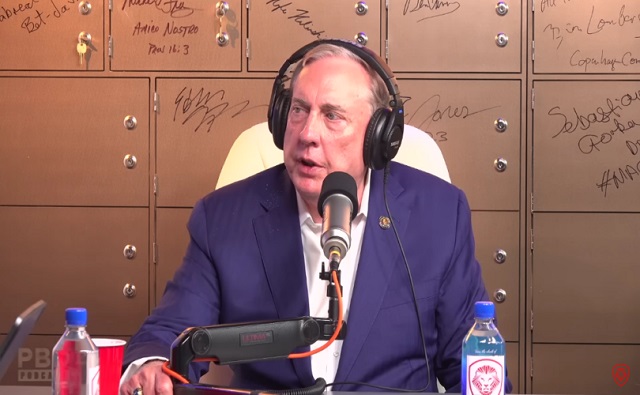
 conflict2 days ago
conflict2 days agoCol. Douglas Macgregor: US is ‘facing disaster’ as it funds overseas wars while bankrupt
-

 conflict17 hours ago
conflict17 hours agoCol. Douglas Macgregor torches Trump over support for bill funding wars in Ukraine and Israel
-

 Alberta2 days ago
Alberta2 days agoAlberta government should create flat 8% personal and business income tax rate in Alberta
-
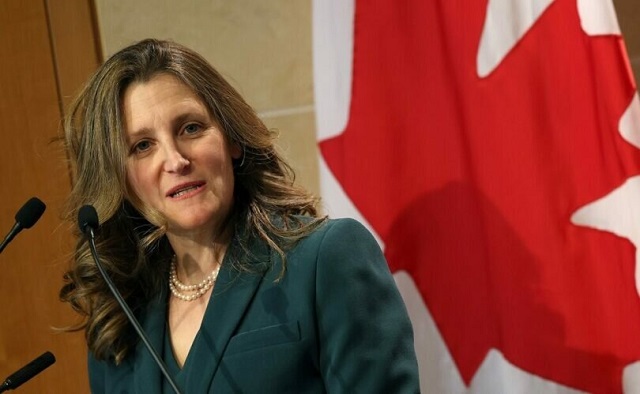
 Housing2 days ago
Housing2 days agoTrudeau’s 2024 budget could drive out investment as housing bubble continues
-
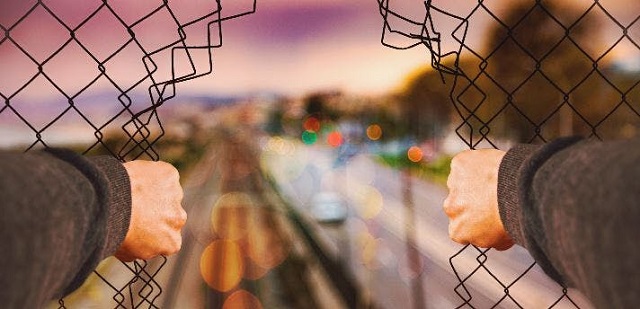
 Great Reset2 days ago
Great Reset2 days agoTerrorists Welcome: Chronic counterterrorism lapses at the border demand investigation










